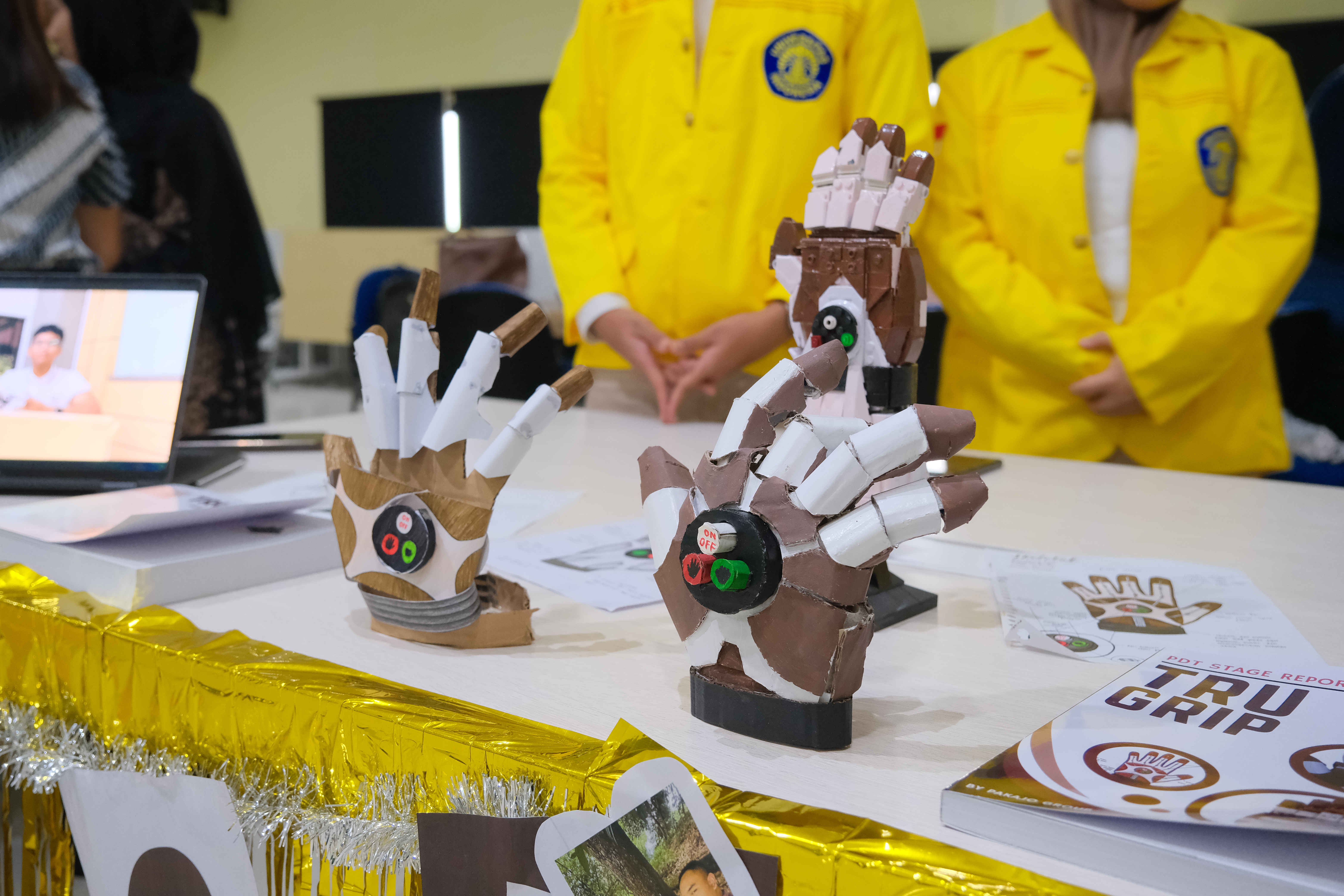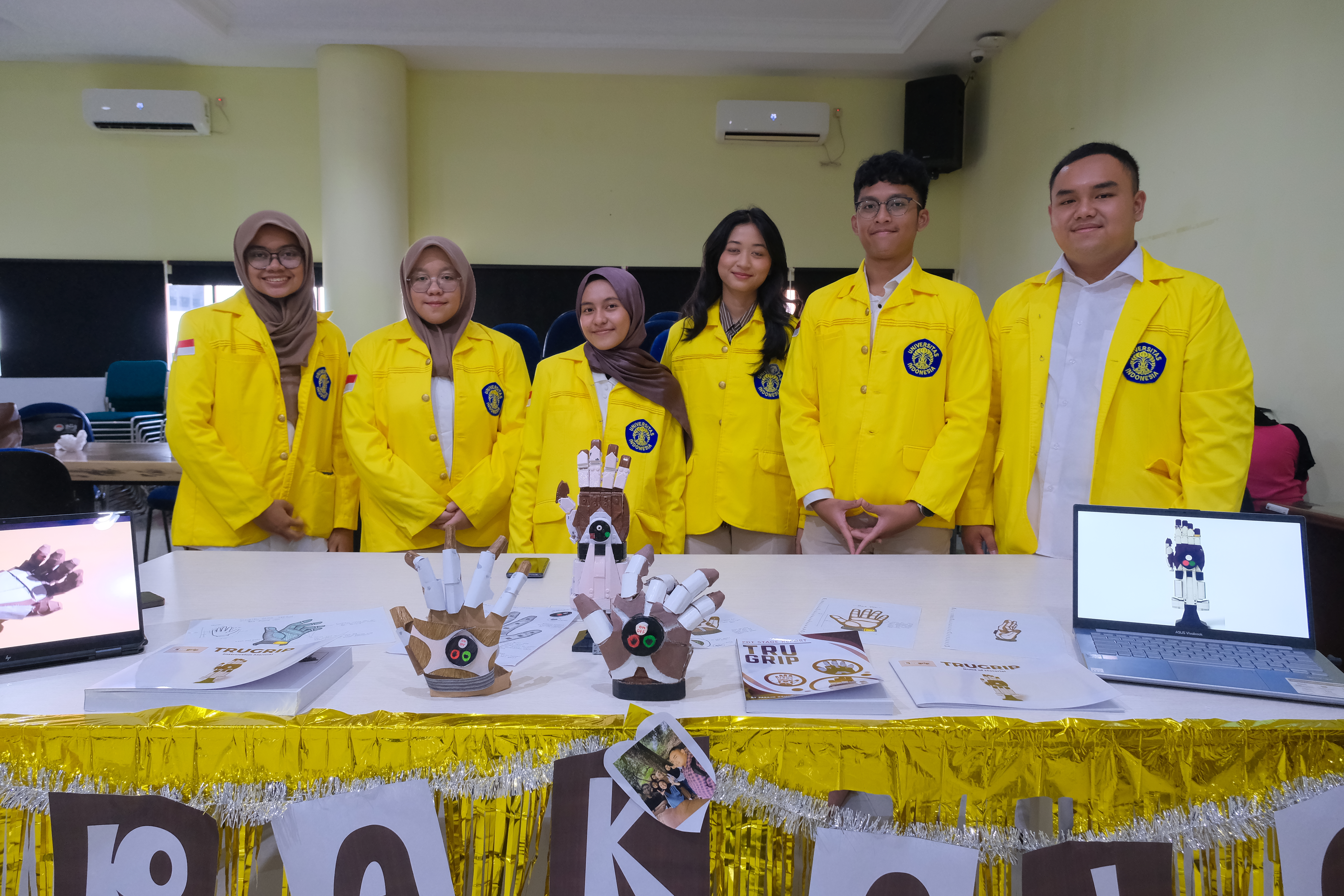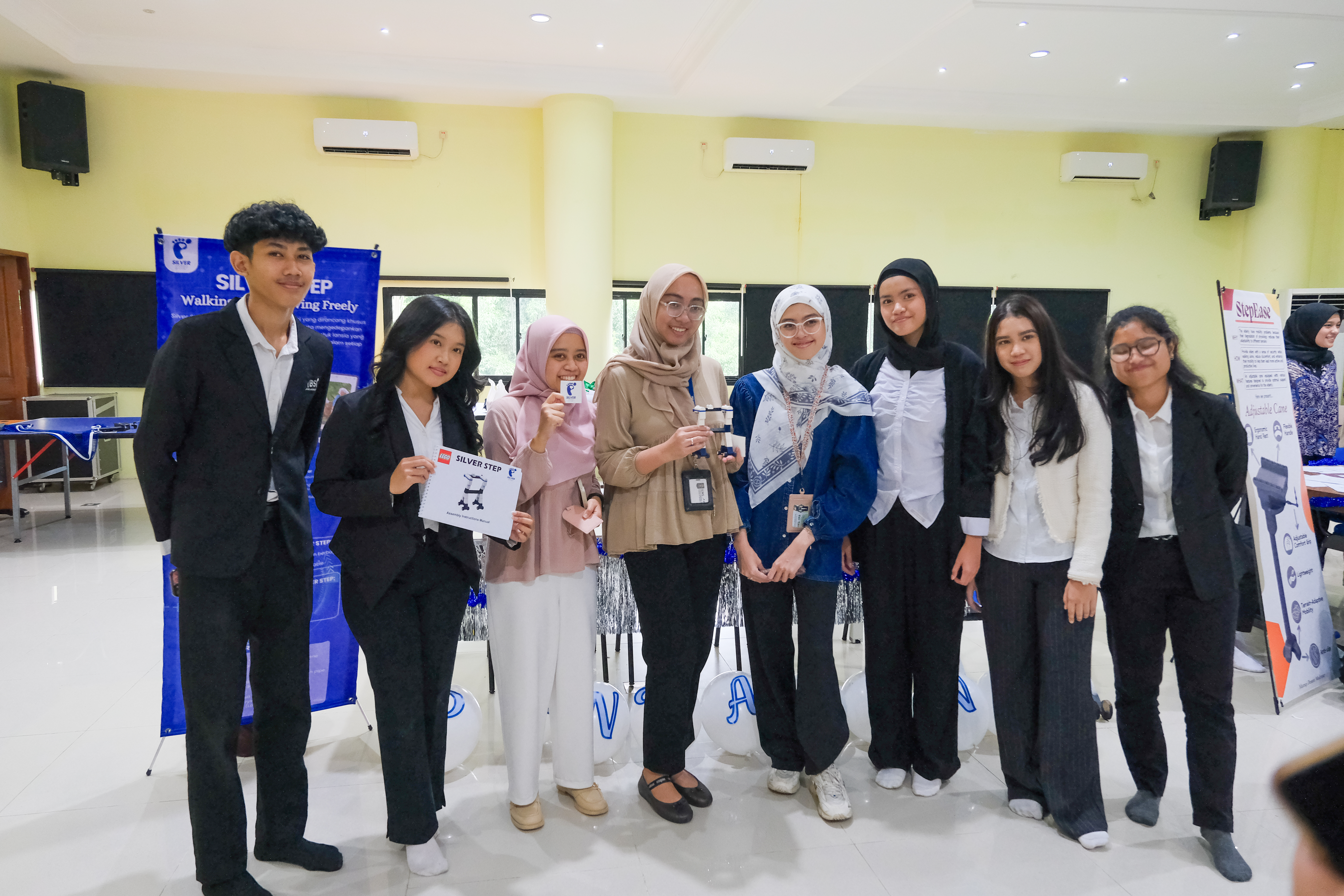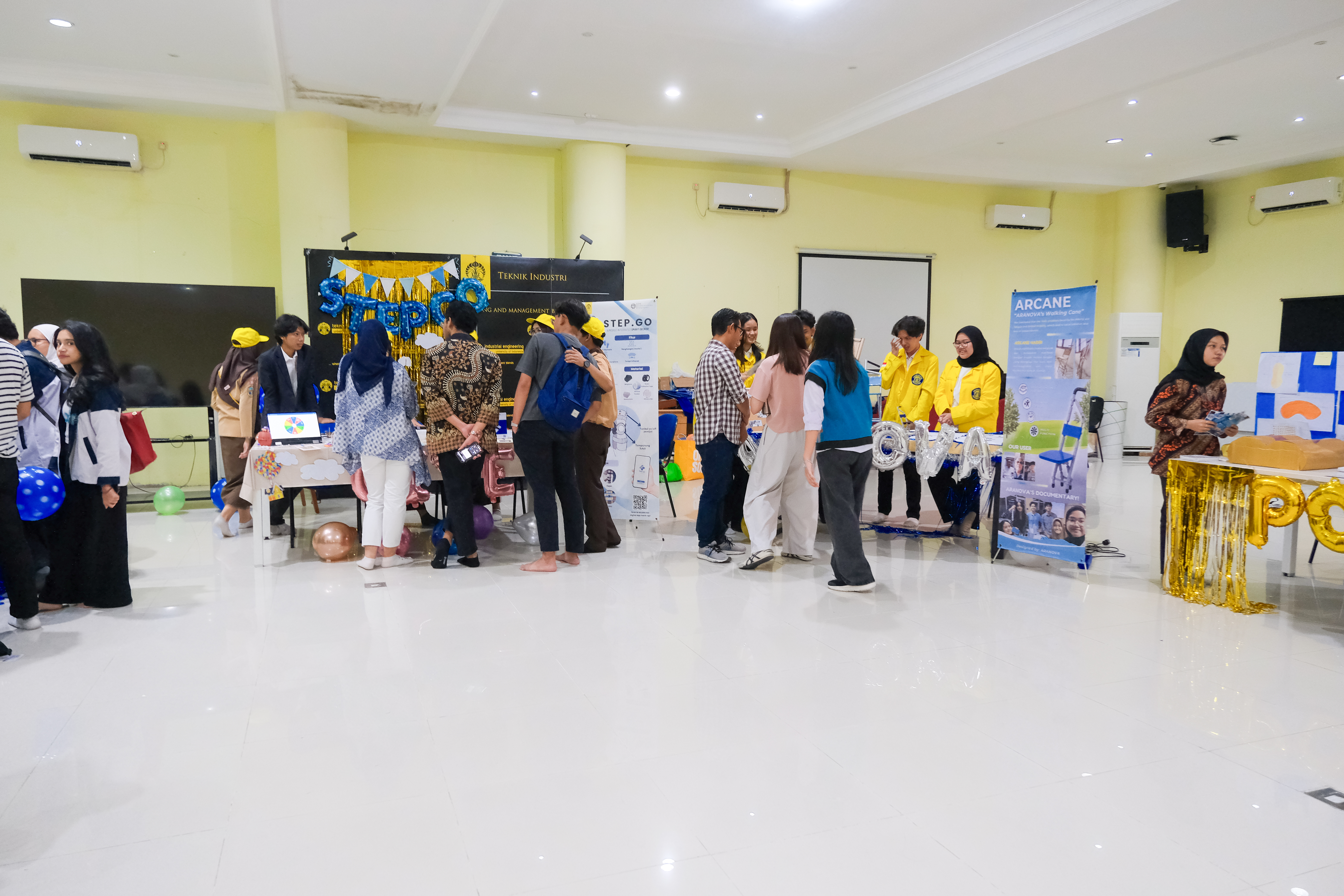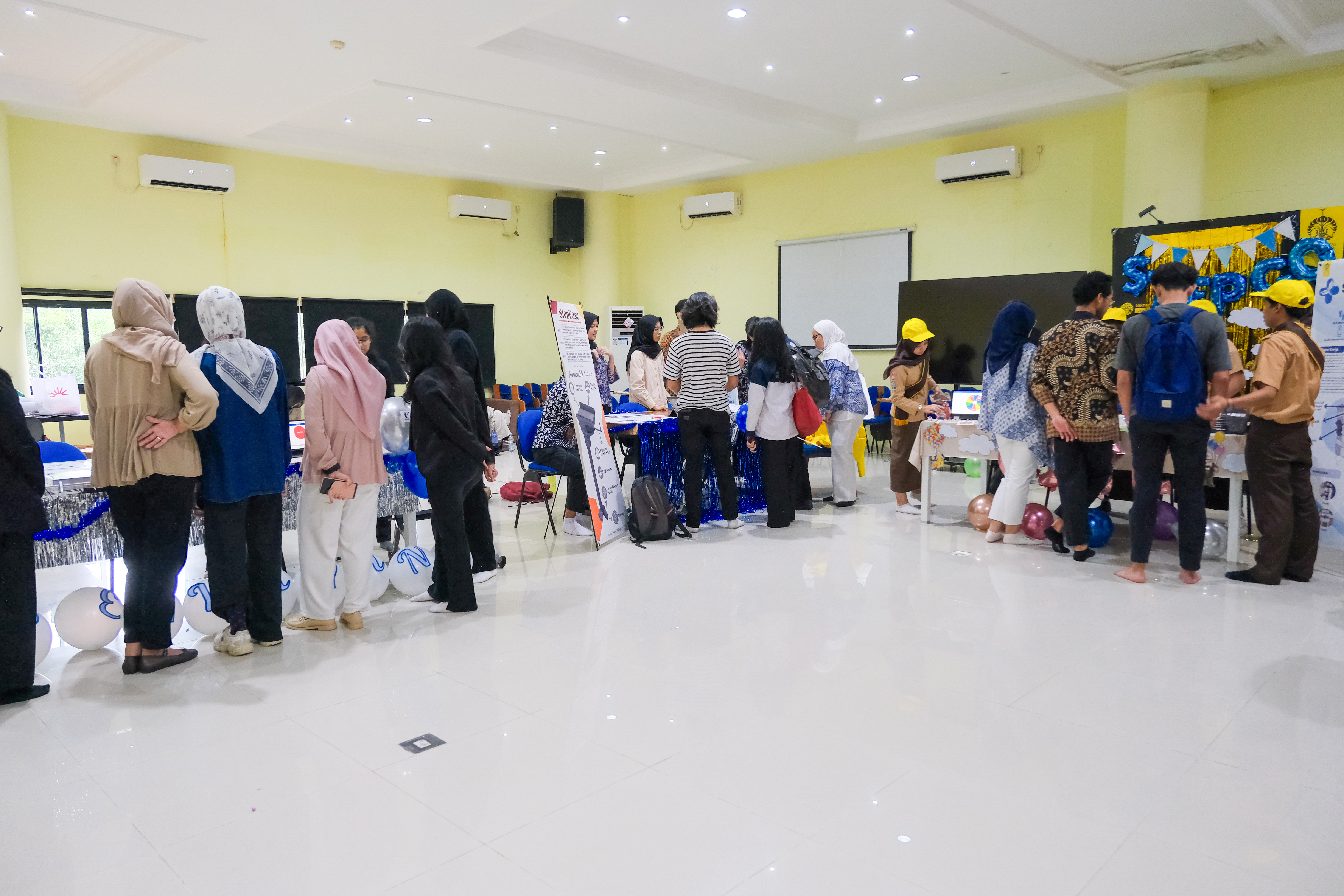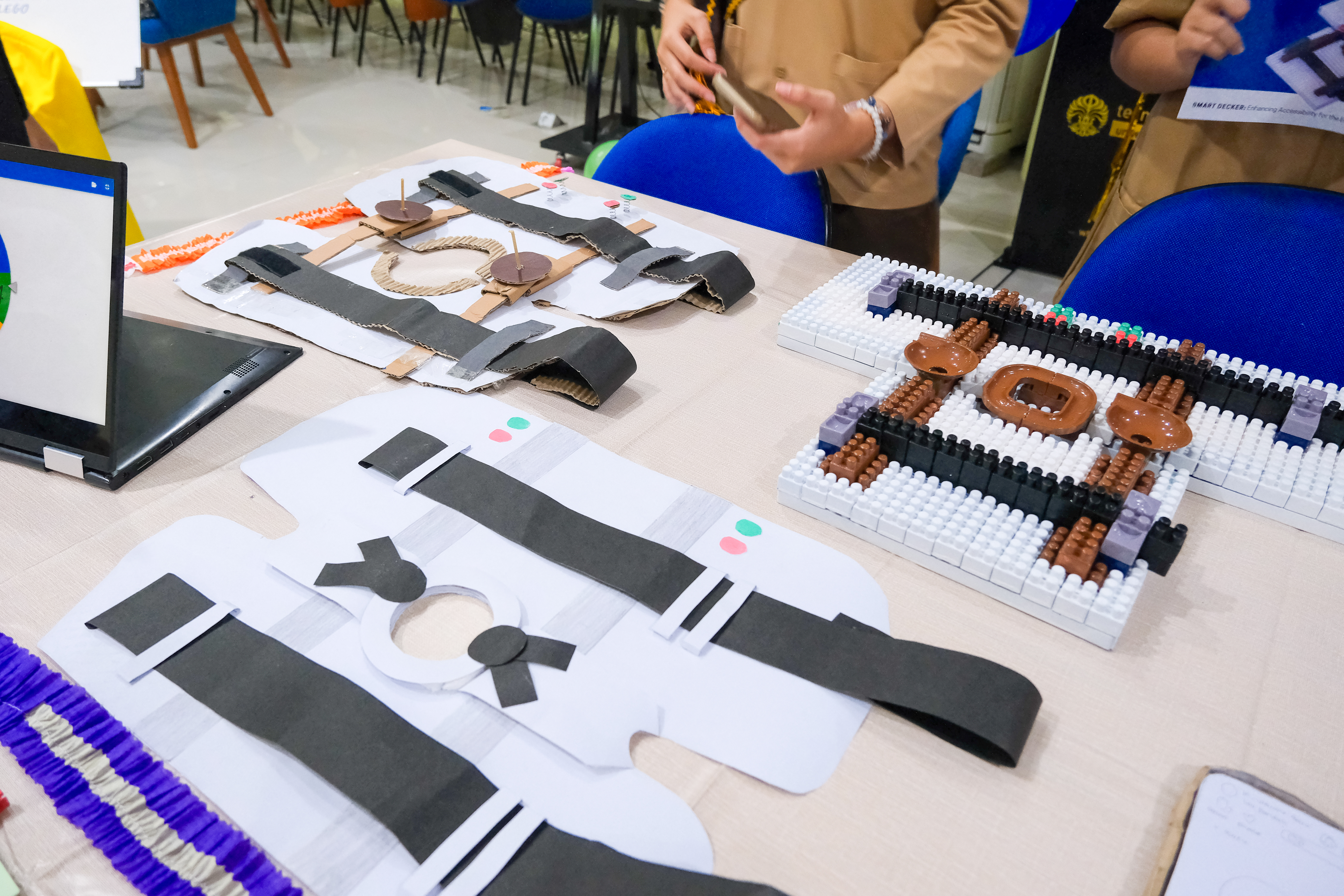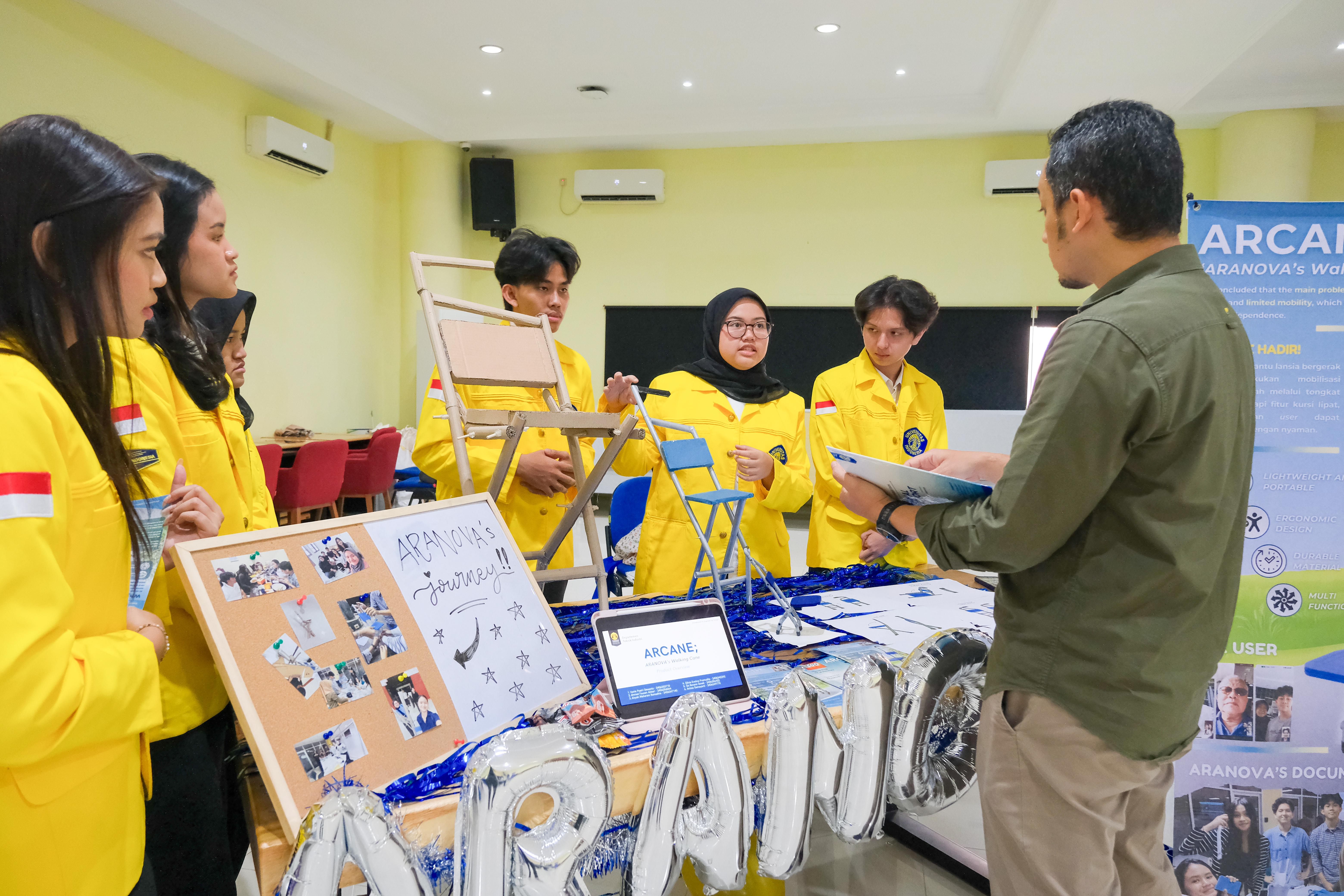Course instructor Prof. Dr. Akhmad Hidayatno, S.T., M.B.T., explained that the program’s main focus was introducing the principle of human-centered design. We want students to understand the steps in designing products based on human needs, from problem exploration to solution implementation. ”
Students were encouraged to explore user needs, meet directly with elderly users to understand their challenges and find solutions by designing relevant products. They then created prototypes, ranging from sketches and paper models to Lego forms. This method was designed to teach the concept of mass production, which is relevant to the industrial world.
Arry Rahmawan Destyanto, S.T., M.T., added that the process aimed to shape students’ mindset as systematic, data-driven problem solvers. “Usually, people jump straight to solutions without understanding the problem. We want students to learn to analyze problems deeply before designing solutions,” he explained.
One of the standout projects was StepGo, a mobile integrated smart device designed to enhance mobility and comfort for the elderly through innovative technology.
StepGo was developed by the CIYE (Creative and Innovative Young Engineers) group, led by Rifdah Aufa Destiani, with members Adicandra Jathi Wardhana, Azkia Raifa Yurizka, Muhammad Royyan Sopian, Rifdah Fidhi Harahap, Sheren Angelica, and Yemima Hotma Mora Panjaitan.
Group leader Rifdah Aufa Destiani explained that StepGo serves two main functions: reinforcement and comfort. The reinforcement function is supported by a metal structure connected to a ROM joint, which improves the strength and smoothness of elderly foot movements. “When the elderly use StepGo, they are expected to walk stronger, like robot legs,” Rifdah explained.
The comfort function is located at the knee area, featuring a unique “doughnut” design. This part has three main tasks: warming, massaging, and infrared therapy. These features are designed to improve the user’s health and comfort. The infrared treatment provides continuous walking care, and the warmer helps older people who often feel cold. The massaging feature provides a relaxing effect.
“What makes StepGo stand out is its integration with a mobile app. The app allows users to adjust the intensity of the warmer, therapy, or massage and connect them with foot doctor partners for further consultation,” Rifdah added.
Rifdah also shared her thoughts on this significant project in the PDT course: “Through this course, we were introduced to the Design Thinking concept used to design solutions for the elderly. I am very grateful to have been part of a solid, proactive, and reliable team during the process. With this exhibition, I hope the knowledge we gained in class can be maximally applied so that the benefits extend to those close to us and the wider community.”
Another team member, Sheren Angelica, hopes StepGo will attract investors for mass production. “We want this product to be a real solution that can improve accessibility and quality of life for the elderly,” said Sheren.
On a separate occasion, Acting Dean of FTUI, Prof. Ir. Mahmud Sudibandriyo, M.Sc., Ph.D., also praised the students’ work. “All of these student works are a testament that FTUI students can produce relevant and impactful societal innovations. We hope this product can continue to be developed into a real solution that helps the elderly in the future,” he said.
***
Public Communication Office
Faculty of Engineering, Universitas Indonesia

